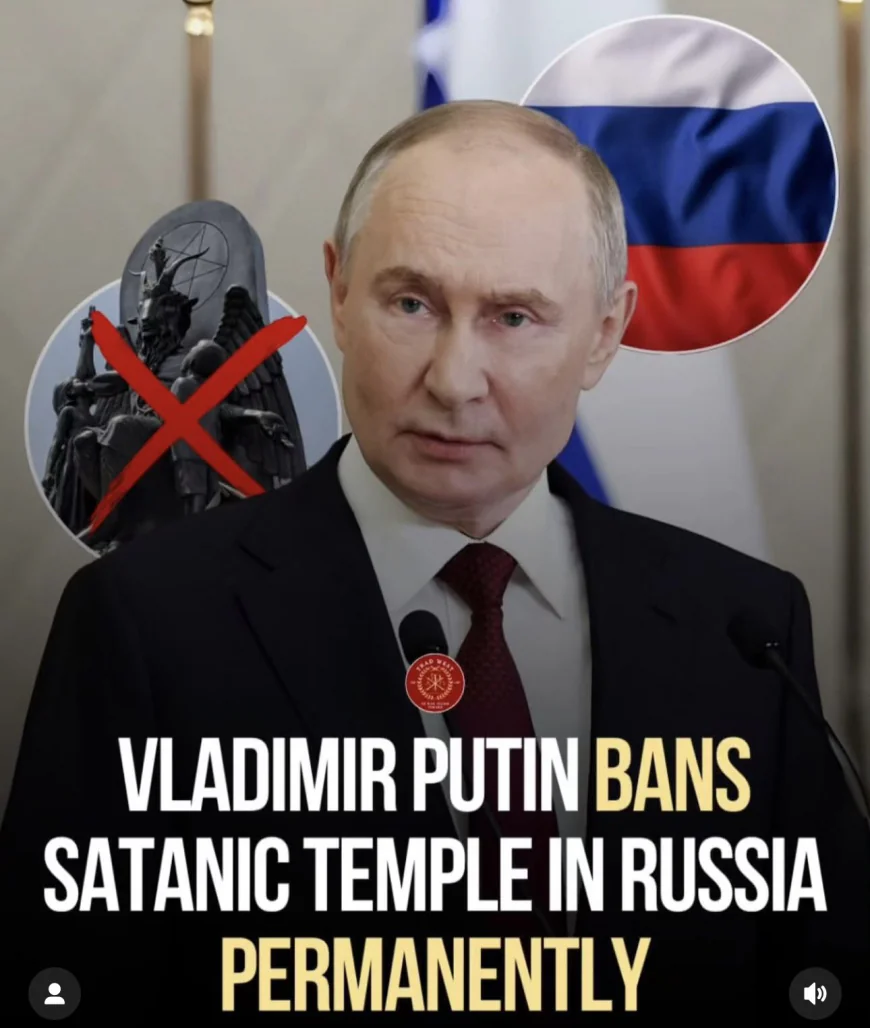Putin Bans Satanic Temple: Russia Declares ‘Occult Ideology’ a Threat
Russia has declared The Satanic Temple and occult ideologies “undesirable,” adding them to a growing list of banned Western-aligned groups a dramatic expansion of ideological repression under Putin.

Russia’s crackdown on Western influence just went metaphysical. In a sweeping ideological purge, President Putin and lawmakers now consider Satanism and its symbols a national security threat.
Under new legislation championed by the Kremlin and Russian Orthodox leaders, The Satanic Temple and related occult groups have been labeled “undesirable.” This builds on prior bans targeting LGBT movements, “furries,” and other Western-associated subcultures part of a broader socio-political purge.
1. What’s Been Declared Illegal
The Prosecutor General’s Office has officially banned The Satanic Temple a U.S.-based group with millions of members globally citing “occult ideology” aimed at undermining traditional moral values and supporting extremist, anti-state agendas
2. Duma & Church Support
State Duma lawmakers, led by Andrei Kartapolov, have equated satanist groups to Western psy-ops, branding them as tools of ideological warfare Patriarch Kirill has publicly backed the ban, calling occultism a destabilizing threat in wartime Russia
3. Cultural Irony
These extremist bans mirror Russia’s paradoxical tactics—while demonizing Satanism, the Kremlin reportedly includes violent criminals and occultists in paramilitary groups fighting in Ukraine
4. Vague Laws, Broad Power
Experts warn the ban’s vague wording could be weaponized. Want to suppress unwanted voices? Just label them extremist or satanic .
Activist voices also drew links between occult bans, LGBT crackdowns, and “child-free” ideology as part of a sweeping ideological crackdown
Russia’s targeting of abstract ideologies reflects a shift: State control over belief. As its moral-political boundaries narrow, every oddball or opposition group risks being swept under the “undesirable” label.
Expect more bans - on religious minorities, online subcultures, even neutral NGOs - under this expanding framework.
- Is banning a church for being “occult” just another power move?
- Could bland ideological labels be the future tools of censorship?
We want your thoughts. Drop a comment, especially if you're tracking this ideological shift.



